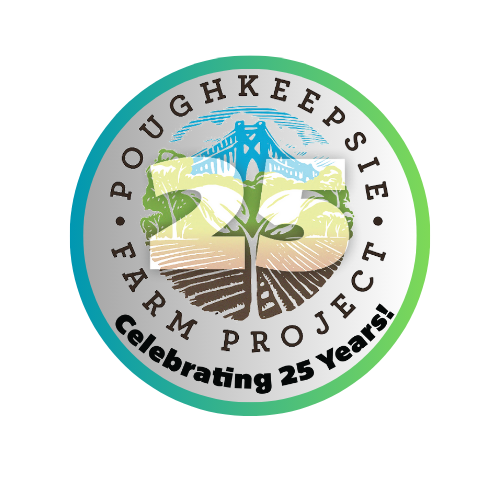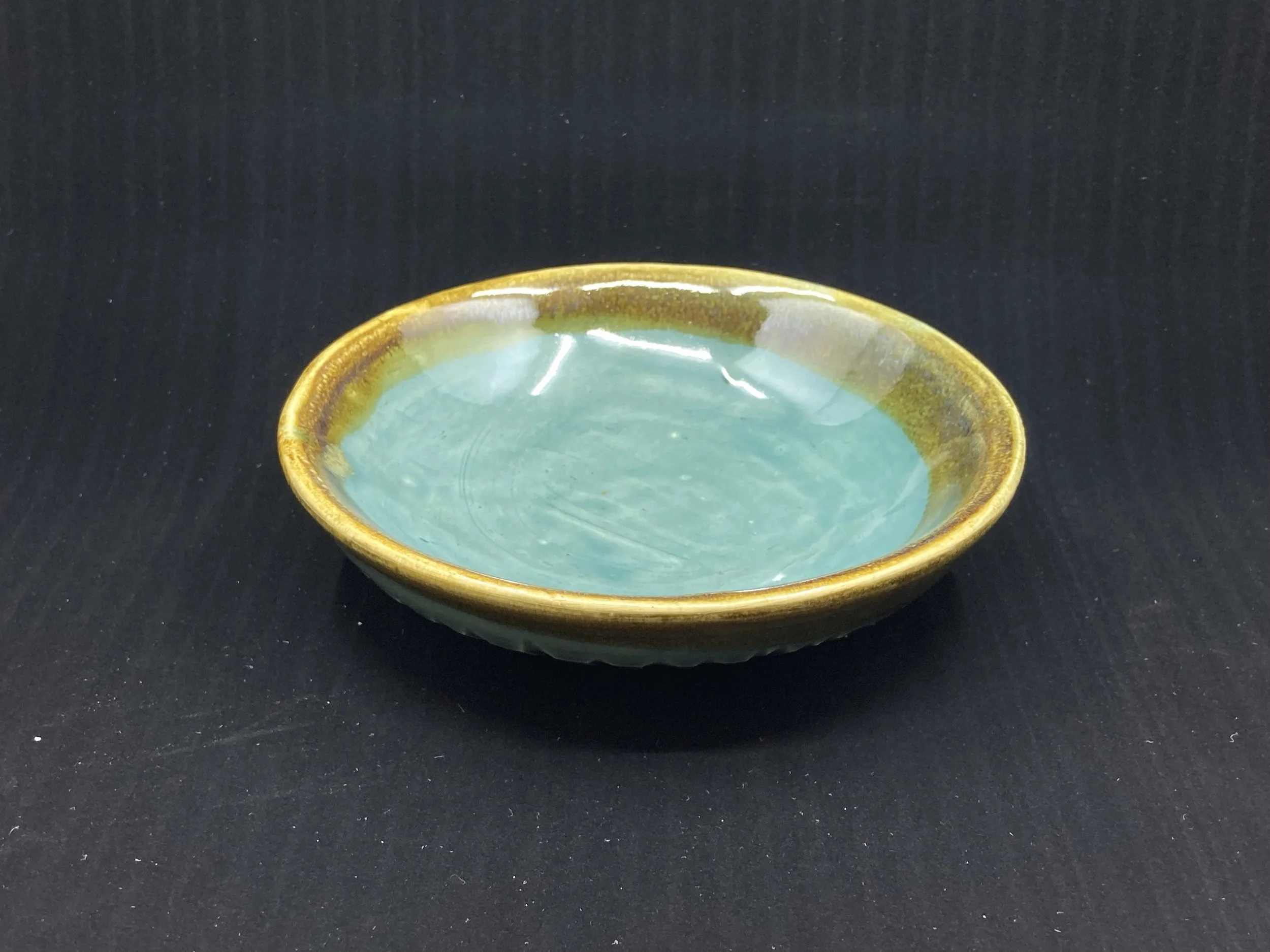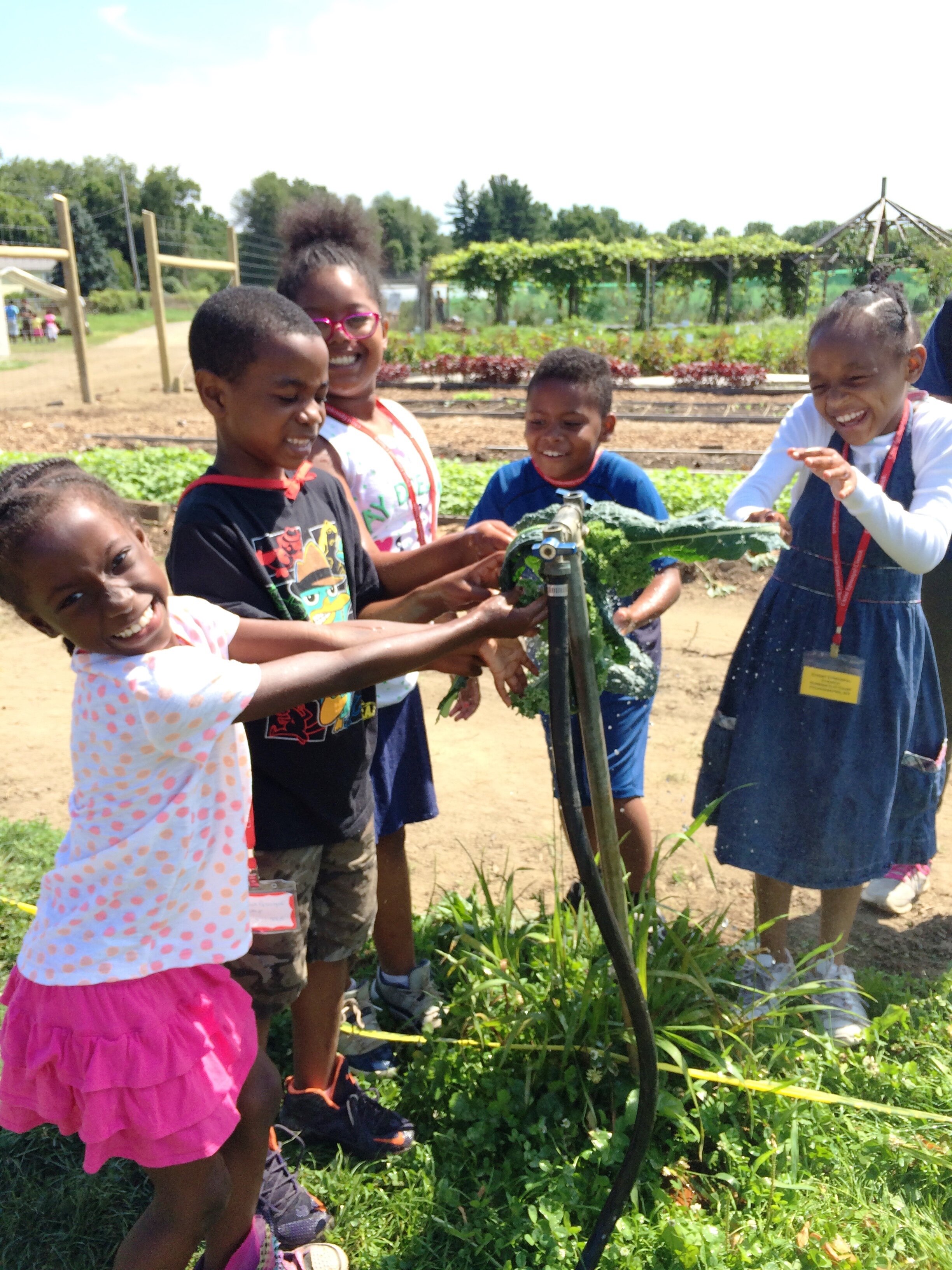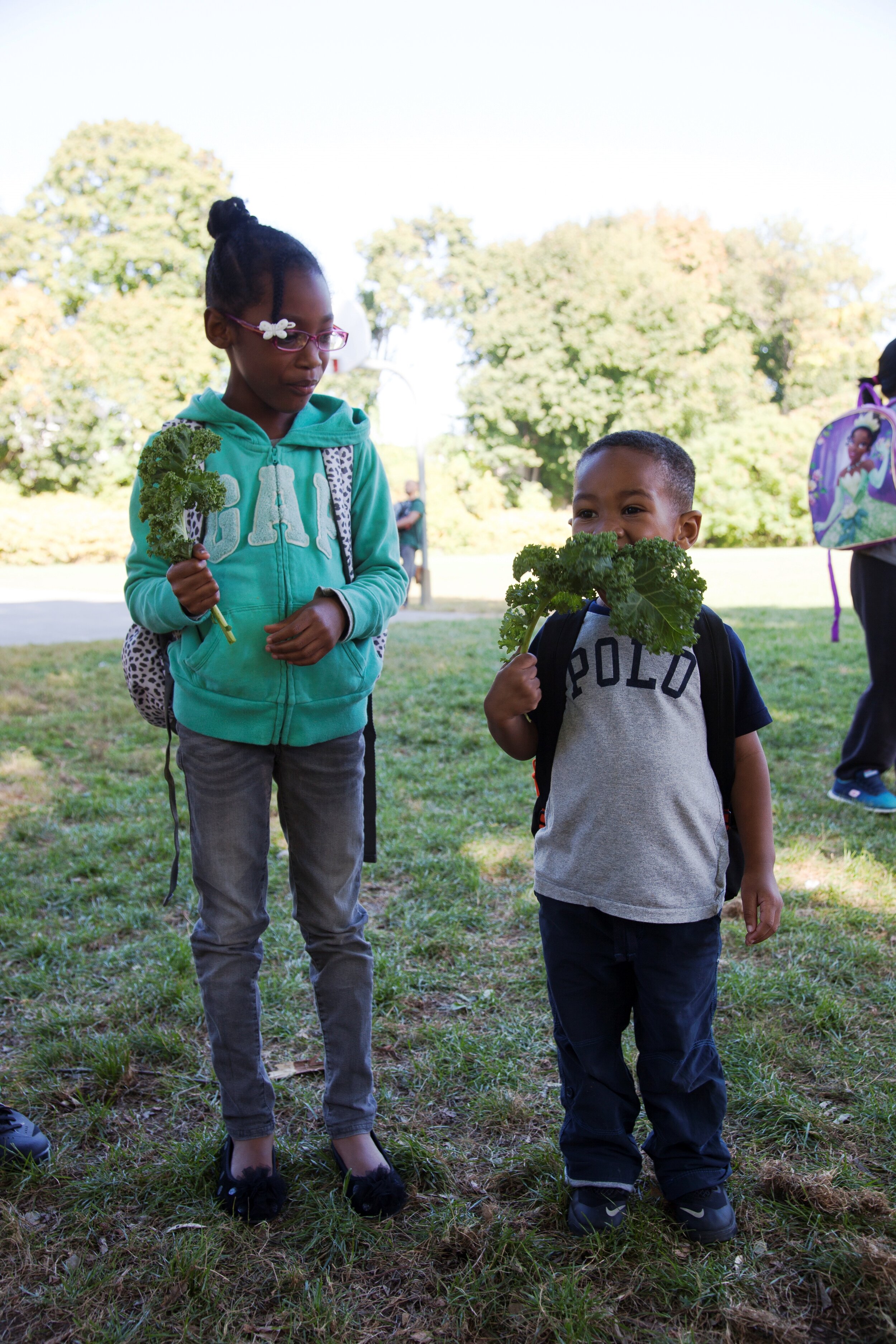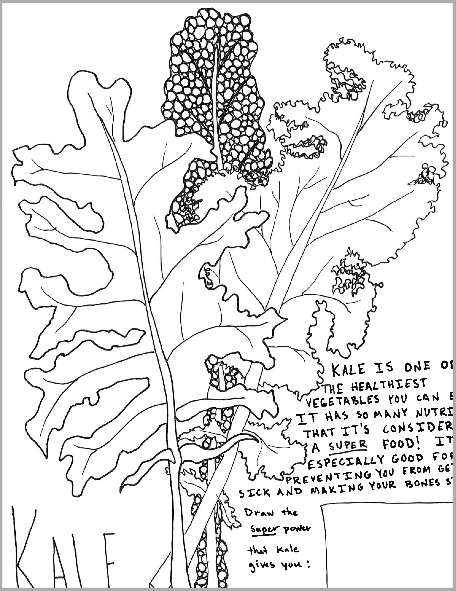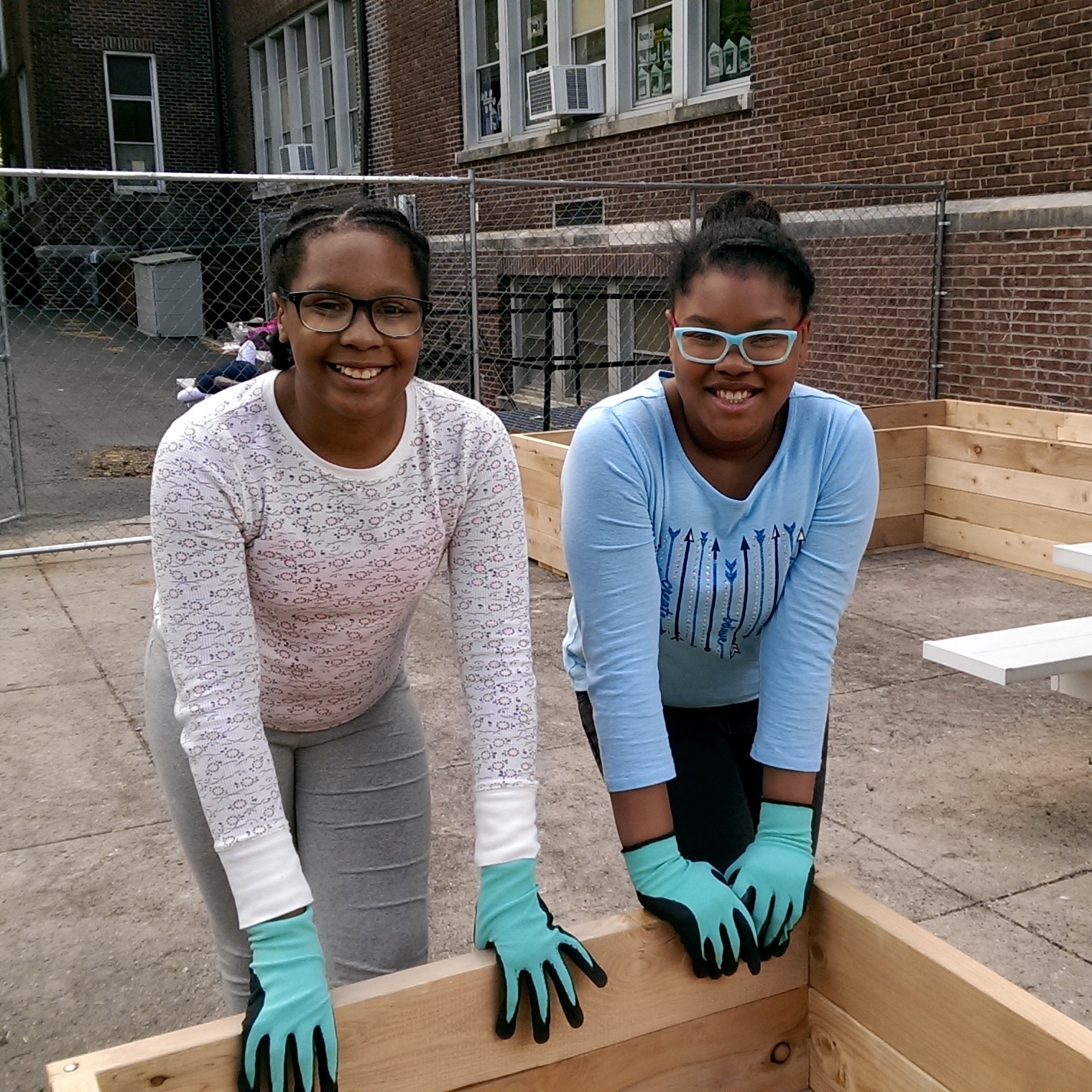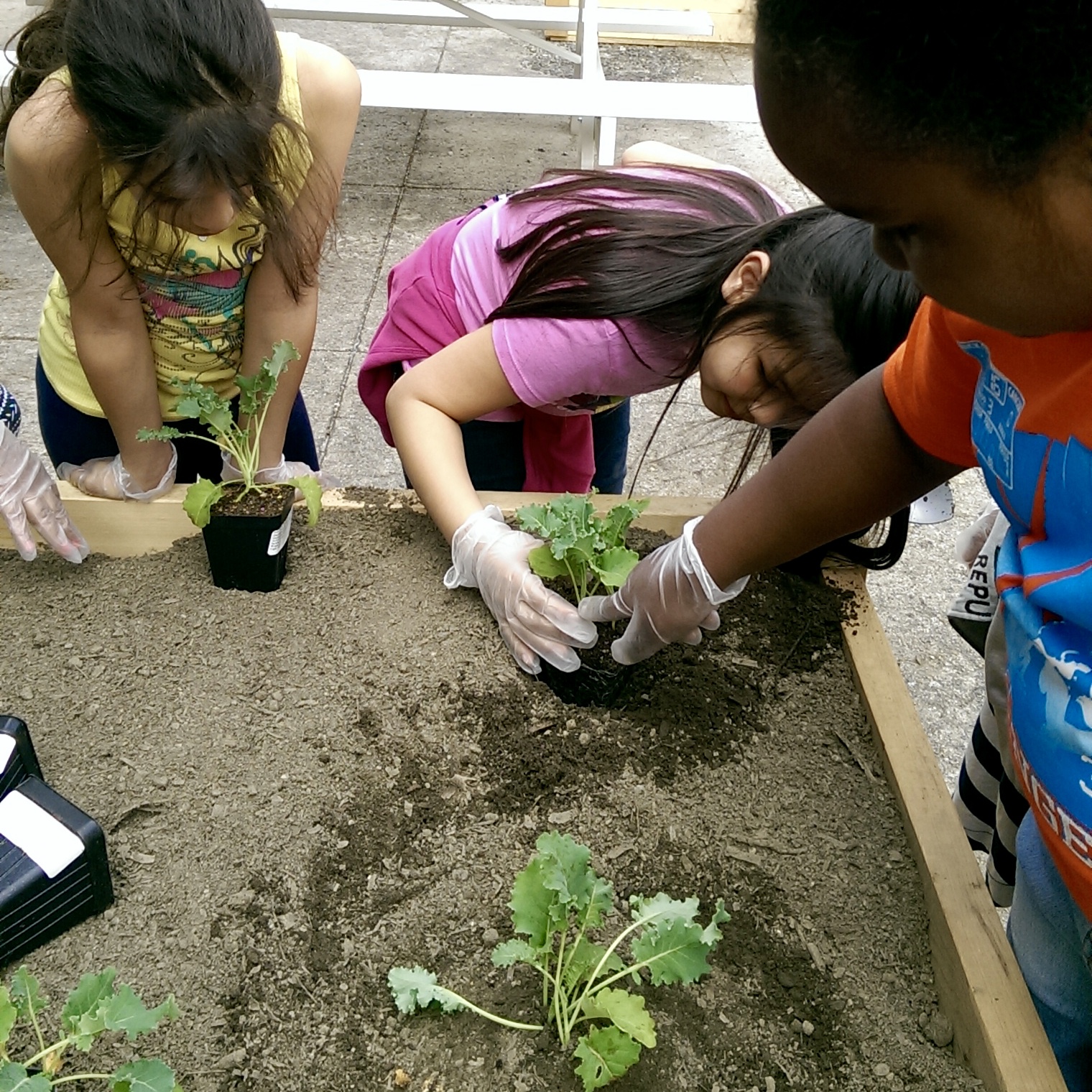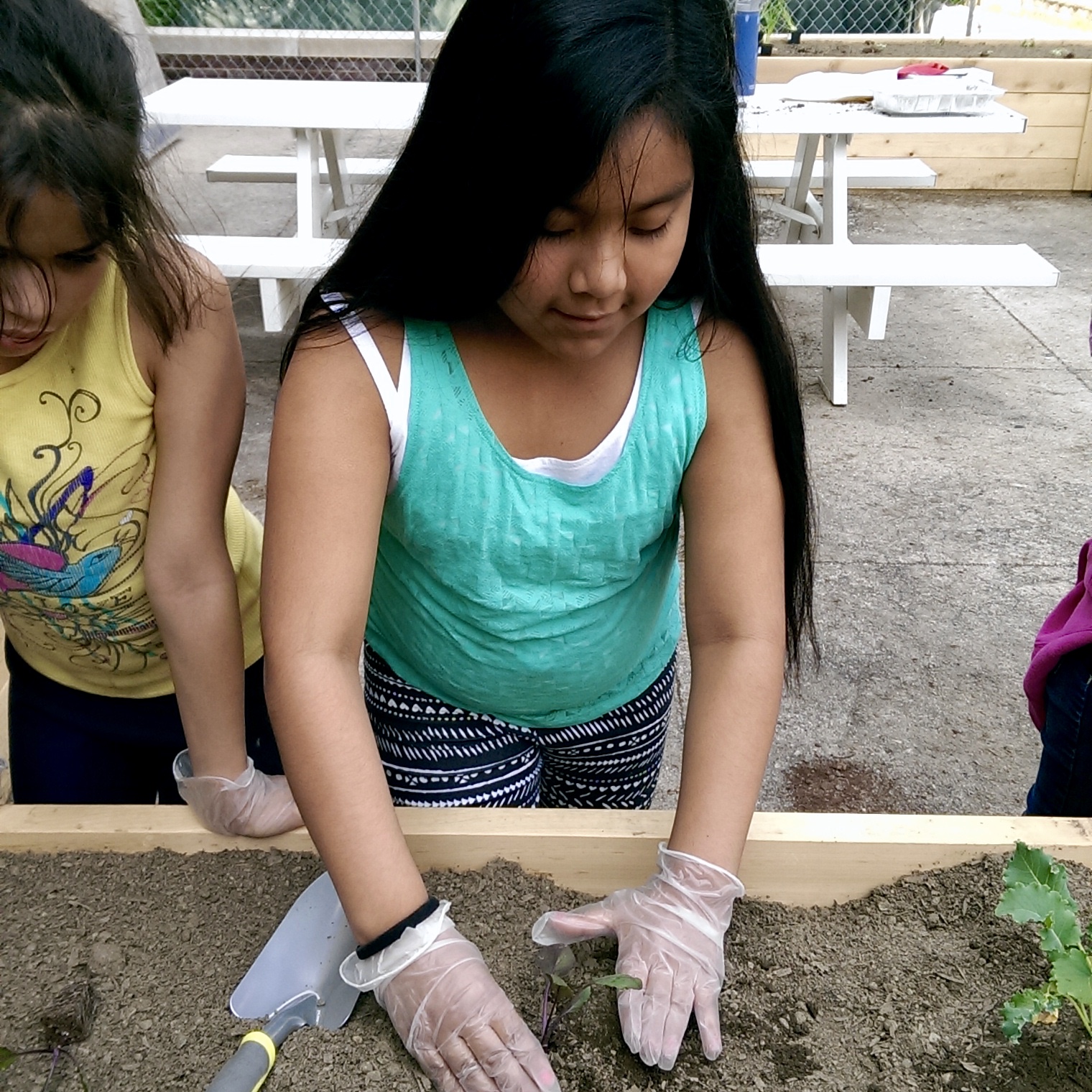November's Harvest of the Month is kale. Harvest of the Month is an initiative of Poughkeepsie Farm Project’s Farm to School program. A different local farm product is served in school meals at area schools each month and we are helping to promote these locally available farm products.
Now, to introduce our November Harvest of the Month… KALE!
By Kathryn B., Farm to School Manager
Most of you have probably heard of this superfood but would you believe it is a favorite among the students we work with?!? Every time we do a cafeteria taste test or have a new student join our after school program they delight us with their memories of coming to the farm and having the spectacular Kale Salad! They love harvesting it, massaging it and adding it to a delicious medley of veggies. Our Harvest of the Month initiative is all about sharing new recipes featuring local farm produce with local kids, so we decided to share a few of our favorite kid-approved Kale recipes and fun resources here.
Thankfully, you can enjoy kale all winter long because it just gets sweeter during the colder months. So even though it’s the November Harvest of the Month, you can count on seeing it at the CSA year round!
Educational Downloads
Green Thumb Smoothie
This green thumb smoothie is a great way to introduce new people to this awesome green! It’s packed with essential nutrients and is still a fruity, sweet treat for any time of day.
Autumn Kale Salad
Try out this autumn kale salad recipe - perfect for the end of the season as we head into winter. Combining this superfood with other favourite autumn produce like butternut squash and apples is just one of many ways we serve up kale salad here at the farm. Experiment with other fruit, nuts, beans and veggies to find your favorite combo!
Oh, Kale Yeah! – Benefits of Kale
It seems impossible that one food could have so many benefits, that’s why we call kale a superfood. Not only is it nutrient rich, it’s delicious too! Try some of our suggested recipes to add kale to your diet!
Kale Coloring Sheet
Check out this cool “kale-oring” sheet. A perfect introduction to a tasty vegetable for the children in your life!
Kale Tipsheet from Just Food
Check out this handout to learn tips about storing and preparing kale, including some delicious recipes!
Kale Newsletter from Western NY Farm to School
Our friends in Western NY created this great newsletter with info on how to grow kale, how to prepare it, and more kid-friendly ideas and recipes!
PFP Kale Blog Post from 2017
Former education intern, Elyse Canty, explained a bit about kale, the varieties we grow and how we like to prepare it when working with children.
